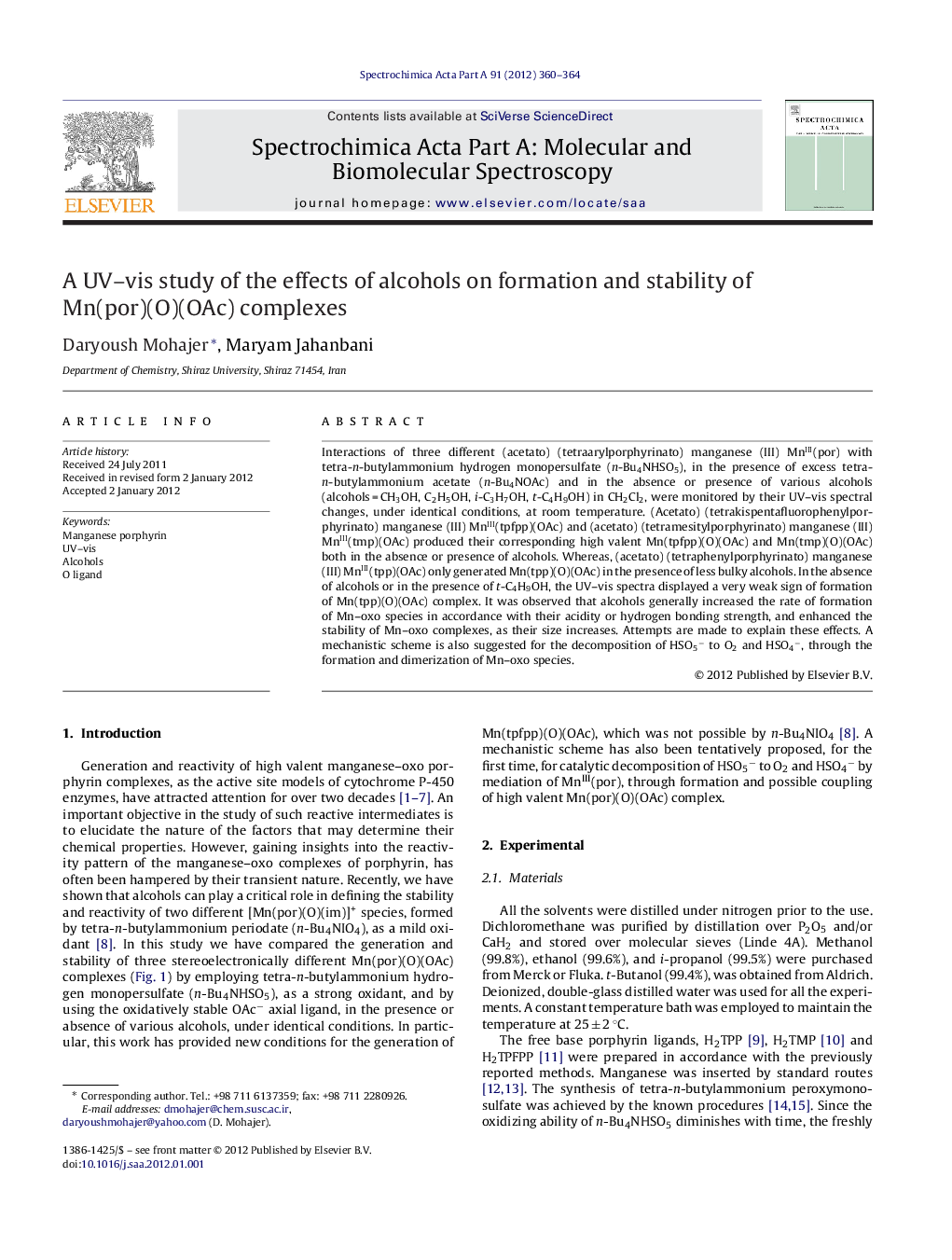| کد مقاله | کد نشریه | سال انتشار | مقاله انگلیسی | نسخه تمام متن |
|---|---|---|---|---|
| 1233028 | 1495277 | 2012 | 5 صفحه PDF | دانلود رایگان |

Interactions of three different (acetato) (tetraarylporphyrinato) manganese (III) MnIII(por) with tetra-n-butylammonium hydrogen monopersulfate (n-Bu4NHSO5), in the presence of excess tetra-n-butylammonium acetate (n-Bu4NOAc) and in the absence or presence of various alcohols (alcohols = CH3OH, C2H5OH, i-C3H7OH, t-C4H9OH) in CH2Cl2, were monitored by their UV–vis spectral changes, under identical conditions, at room temperature. (Acetato) (tetrakispentafluorophenylporphyrinato) manganese (III) MnIII(tpfpp)(OAc) and (acetato) (tetramesitylporphyrinato) manganese (III) MnIII(tmp)(OAc) produced their corresponding high valent Mn(tpfpp)(O)(OAc) and Mn(tmp)(O)(OAc) both in the absence or presence of alcohols. Whereas, (acetato) (tetraphenylporphyrinato) manganese (III) MnIII(tpp)(OAc) only generated Mn(tpp)(O)(OAc) in the presence of less bulky alcohols. In the absence of alcohols or in the presence of t-C4H9OH, the UV–vis spectra displayed a very weak sign of formation of Mn(tpp)(O)(OAc) complex. It was observed that alcohols generally increased the rate of formation of Mn–oxo species in accordance with their acidity or hydrogen bonding strength, and enhanced the stability of Mn–oxo complexes, as their size increases. Attempts are made to explain these effects. A mechanistic scheme is also suggested for the decomposition of HSO5− to O2 and HSO4−, through the formation and dimerization of Mn–oxo species.
Figure optionsDownload as PowerPoint slideHighlights
► Formation and decay of Mn–oxo complexes were monitored by UV-vis spectral changes.
► Nature of alcohols influences the formation and decay rates of Mn(por)(O)(OAc).
► A mechanistic scheme is proposed for the formation and decay of Mn(por)(O)(OAc).
Journal: Spectrochimica Acta Part A: Molecular and Biomolecular Spectroscopy - Volume 91, June 2012, Pages 360–364